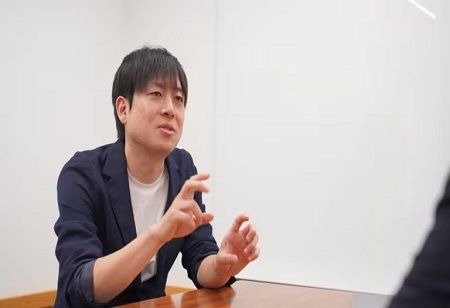-
- Manabie International to digitally transform schools in the Philippines and Vietnam with AI-driven education tools
- Startup secured $23M funding to expand AI-based personalized learning and streamline cram school operations
- Plans to scale rapidly in Southeast Asia, targeting 100,000 students across 200 cram schools in Vietnam within 3-4 years
Singapore-headquartered and Japan-owned education venture Manabie International is on a quest to deploy services that will digitally transform schools in the Philippines and Vietnam later this year, wagering that digitalization will be key to addressing the heightened education needs in fast-expanding Southeast Asia.
The firm, which is primarily engaged in serving and running cram schools, offers a full range of digital products and services such as drills, instructional materials, student progress tracking, employee timesheets and curriculum management.
With the recently secured 3.3 billion yen ($23 million) funding, the startup is also speeding up the application of artificial intelligence for purposes such as self-study. "What we want to do is digitalize education as much as possible", Manabie CEO Takuya Homma said in an online interview.
The company was founded in Singapore by Homma in 2019, who expects AI to reduce workloads on teachers and organize student learning. This would make an industry with a large number of small operators more efficient.
The system Manabie has created is meant to speed up digitalization in schools and cram schools, and simplify teachers' tasks. An example of a messenger function is for contacting parents, posting advance schedules and reminding them of tuition payments. The system also keeps student's grade information and attendance records. Students generally visit cram schools with the aim of passing entrance examinations. Manabie's platform is already utilized by large Japanese education service providers like Z-kai and Riso Kyoiku.
The firm does not release specific financial figures like revenue and clients, but paid subscribers grew sixfold compared with 2022 in Japan, its prime current market. In Japan, the industry for cram schools is controlled by 19 major players, which held two-thirds of total sales in March 2024, as per Tokyo Shoko Research, an issuer credit research firm. But new operators are establishing businesses constantly, and therefore, there is increasing competition as well.
The global education technology market was valued at $163.49 billion as of 2024 and is expected to grow at a compound annual growth rate of 13.3 percent from 2025 to 2030, states Grand View Research, a research and consulting firm.
Manabie's system is 'all-in-one', encompassing a broad spectrum of tasks from teacher-level work to generating personalized homework for students, Homma said, detailing one of the advantages of his company over rivals.
"It was hard for instructors to give separately optimized homework [to each student]", Homma explained. Manabie's system reviews a test's results and generates tailored homework, from problems that the students were unable to solve properly to sections they struggled with.
It also features an AI tutorial function for supporting students' self-study and homework, with a generative AI chatbot responding to students' questions immediately, both text and picture-based problems. It can respond to queries at the level of elementary school through university.
"Students can pose questions at once if they don't know answers" wherever they are at a classroom or home, said Homma. Homma sees the day when AI will grade students' performance and generate lesson content.
The company will roll out its services later this year in the Philippines, a nation with approximately 110 million inhabitants the second largest number of ASEAN member states with a youthful median age of 25.3 years old. Homma hopes to pitch Manabie's system to interested schools. He is also seeking domestic partners like domestic conglomerates, education companies and telecommunication firms.
Vietnam is a promising market for Manabie as well, Homma added. Manabie already develops computer systems in the country, and operates an independent business that oversees 30 cram schools. It has been normal for students in Vietnam to study in cram schools due to the highly competitive environment in getting into universities, Homma explained.
Fees for Manabie cram schools in the Southeast Asian nation cost $25 to $30 per month for a single subject. The business now has 13,000 students, but Homma is targeting 20,000 this year and is looking to have 100,000 students at 200 cram schools in three or four years. Homma is also looking at listing on the Japanese stock market in the future.
🍪 Do you like Cookies?
We use cookies to ensure you get the best experience on our website. Read more...

